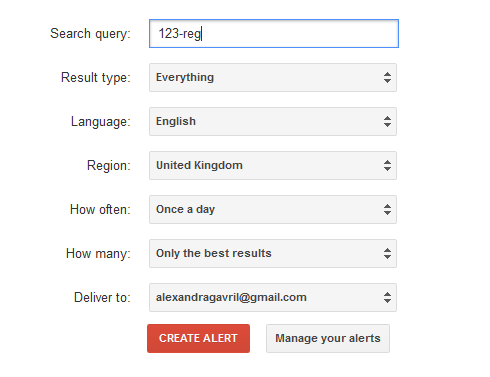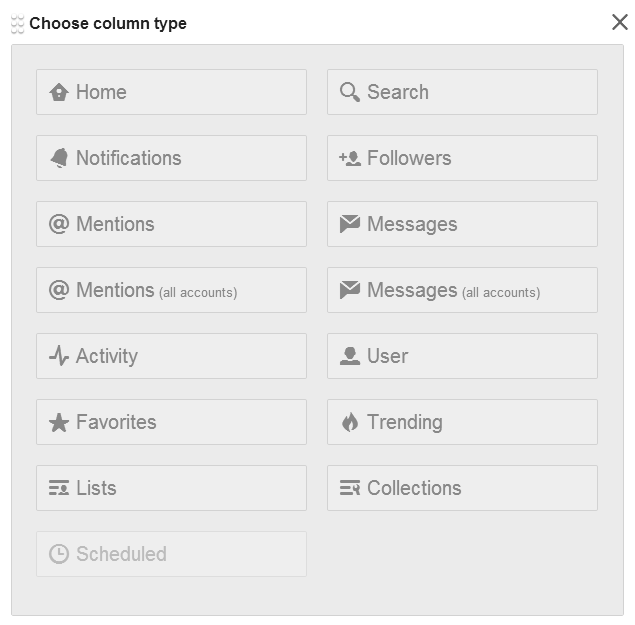On brand mentions and the future of links “without links”
Can you imagine a world without links and a web without link building? What if Google removed link value from their algorithm altogether?
That’s probably never going to happen, however it’s very likely that links will become less important. In fact, Matt Cutts shared a video recently where he talks about how backlinks might not influence rankings in the future as much as they do now.
To summarise it, he says that in a few years Google will put “a little less emphasis on links” and a bit more on conversational search and natural language when it comes to assessing the reputation of pages and of sites.
Now, with the recent Google Penguin penalties and the assault on guest blogging done strictly for SEO, the factors that impact success online may very well change soon. While link building remains alive and well, there’s loads of buzz on a new concept – brand mentions.
So, a patent filed last month, which some say could be the Panda patent, mentions that site authority and relevance may soon be measured “using a ratio of links and mentions, or ‘implied links’”.
I knew it! RT @CyrusShepard: This Google patent defines non-linking citations as “implied links” http://t.co/cOxv0irklk
— Rand Fishkin (@randfish) March 26, 2014
The relevant part of the patent is this:
“The system determines a count of independent links for the group (step 302). A link for a group of resources is an incoming link to a resource in the group, i.e., a link having a resource in the group as its target. Links for the group can include express links, implied links, or both. An express link, e.g., a hyperlink, is a link that is included in a source resource that a user can follow to navigate to a target resource. An implied link is a reference to a target resource, e.g., a citation to the target resource, which is included in a source resource but is not an express link to the target resource. Thus, a resource in the group can be the target of an implied link without a user being able to navigate to the resource by following the implied link.”
So, a hyperlink as we know it today is referred to as an express link. While this will still be factored into the algorithm, the implied link will be just as important, if not more. The implied link is the brand mention or online citation. Basically, it’s when someone mentions your company name, brand or product name without actually linking to your site.
Why mention building might pay off more than link building in the future
Measuring authority
With the abuse of guest blogging and similar tactics, Google needed to find a more efficient way to measure authority without relying on links. This is where brand citations come in. A site can have tens of links but if it has few brand mentions, that says something about its lack of authority.
Measuring social engagement and sentiment
This new patent can also be a great way to measure social engagement and sentiment. As you know, social media shares tend to be nofollow so those links don’t pass PageRank anyway. So, there needed to be a way to handle all that social activity (shares, tweets) that mention a brand name but without including a link.
You might mention a person, a site or a brand for various reasons – maybe you like the brand, maybe you’ve bought something and want to give the business credit for a fantastic product or service. Or maybe you’re not happy with the service or product and want everyone to be aware. Just mentioning a name can do the trick.
How to improve brand mentions
The answer may sound simple but it takes hard work: build great content that gets people sharing and talking about your brand. And do that constantly, not just once every month or so.
If you want you content to be read and shared by tens of thousands, make sure it plays on core emotions. There’s actually a report first shared in 2010 titled ” Social Transmission, Emotion, and the Virality of Online Content,” that talks about the strong relationship between emotion and how likely it is that your content will “go viral”.
Here’s a few ideas on what type of content you should be publishing:
- Positive content that makes people feel good
- Awe inspiring, surprising or humorous content
The report mentions that content that causes sadness or evokes anger is less likely to be shared or to become viral.
Now, while you’re doing your best to increase brand citations online, make sure you also track these mentions as well as nofollow links. There’s no point doing all of this if you don’t know how well you are performing.
Six tools for monitoring mentions and social sentiment
These are a few tools you can use to monitor mentions of your brand and see how you’re performing at building engagement and how your audience feels about your brand.
Google Alerts is a fantastic tool for setting up alerts for certain keywords, such as your brand name, and having the latest news delivered to your inbox. It monitors news, blogs, video, discussions, books, and it’s free.
Here’s how you can set up a custom Google alert so you can get notified as soon as a mention of you brand (without a link) happens.
Let’s say I want to monitor Google’s index for mentions of 123-reg.

So, all you need to do is enter your brand name into the search query field, choose how often you’d like to receive notifications (you may choose as-it-happens, once a day or once a week) and then create the alert.
2. Mention combines media and social monitoring, tracking content published on web pages, news sites, blogs and forums in tens of languages. There’s a free plan but that only allows you to set one alert and up to 100 mentions.
3. Social Mention is a free web search tool that provides real time search of brand mentions on blogs, microblogs, images, videos, questions, and bookmarking sites. It also provides a broad brush sentiment analysis.
4. Topsy allows you to search tweets from 2006 onwards and it looks at links, photos, videos, influencers, and more. However, you will need the Pro version for more advanced reports and alerts.
5. TweetDeck is also a great tool to monitor mentions on Twitter. Here’s one simple thing you can use to track your mentions all the time.
Go to Add Column located in the left menu and then click on Mentions to create a private timeline that’s constantly updated with tweets talking to/ about you. You can also create separate timelines with tweets that include specific search terms – your brand name, product name, CEO, certain keywords. To do that, simply click on Search, enter the search term and you’re ready to go.

6. Hootsuite is a social media management tools that not only enables you to track and respond to mentions of your brand or specific keywords that you’ve set up but also to schedule status updates.
There are probably loads more tools you can use for this purpose so if you have any recommendations, do share them in a comment below.
What next?
Yandex, the largest search engine in Russia, has already announced at the beginning of April that they have launched their “no link” algorithm, which means that they will no longer consider links for commercial queries as a ranking factor (more specifically, commercial queries in the Moscow region).
When it comes to Google, the exclusion of backlink relevancy is just a “what if” scenario at this point. In fact, asked if Google have a version of the search engine that completely excludes backlink relevancy, Matt Cutts said in a YouTube video that they have indeed been running some internal tests to see how this would work and what would happen. According to Cutts, excluding backlinks relevancy resulted in “much worse” search quality.
“It turns out backlinks, even though there’s some noise and certainly a lot of spam, for the most part are still a really, really big win in terms of quality for search results,” said Cutts.
So, even if Google does decide to put less emphasis on links and more on brand mentions in assessing a site’s authority, links will still be important.
Your turn now: If Google does decide to put less emphasis on links, how do you think this would affect your business?
